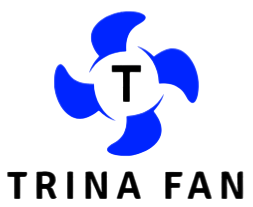In the ever-evolving digital landscape, where censorship and surveillance are increasingly prevalent, the need for secure and anonymous online spaces has never been more critical. Darknet services, often misunderstood and stigmatized, offer an alternative for those seeking privacy, anonymity, and freedom from governmental oversight. These services, hosted in encrypted networks, provide a refuge for users who want to protect their identity, express their opinions freely, or access restricted content without fear of repercussions. The anonymity these platforms offer allows users to maintain privacy, whether for personal or professional reasons, in an environment where security and confidentiality are paramount. One of the key features of the Darknet is its use of sophisticated encryption technologies. These technologies ensure that users’ activities remain concealed from prying eyes, including governments, corporations, and cybercriminals. By masking IP addresses and using complex encryption protocols, these services make it extraordinarily difficult for anyone to trace an individual’s online behavior. This makes the Darknet a powerful tool for individuals living in oppressive regimes where internet activity is heavily monitored, and censorship is rampant.

Unlike traditional centralized internet services, where a single point of failure can compromise the entire system, the Омг онион darknet is built on multiple, independent nodes that ensure uninterrupted access. This decentralized structure allows users to circumvent governmental attempts at shutting down or blocking access to certain websites, making it a crucial tool for those in regions with strict internet controls. For digital freedom seekers, the Darknet’s decentralized nature means greater security and control over their online experience. Another vital aspect of the Darknet’s appeal is the wide range of services it supports. From private messaging and secure communication to forums and marketplaces, the Darknet provides a variety of platforms where individuals can interact without the threat of surveillance. These platforms cater to different needs, whether someone is looking for a space to discuss sensitive political topics, conduct research on a topic that might be considered controversial, or exchange goods and services in a secure environment.
However, the use of the Darknet is not without risks. Due to the lack of regulation and the presence of illegal activities, navigating these spaces requires a certain level of caution. While many users turn to the Darknet for its legitimate benefits, there is a darker side where cybercrime and other illegal activities thrive. As a result, digital freedom seekers must exercise discretion and responsibility when engaging with these platforms. It is essential for users to educate themselves about the potential dangers, including malware, scams, and other cyber threats, and to take steps to protect their security. Despite these challenges, the Darknet remains a crucial element of the broader conversation surrounding digital freedom. In a world where privacy is increasingly compromised, and personal data is commoditized, the Darknet offers an important counterbalance. It represents a space where individuals can reclaim their online autonomy and engage with the digital world on their own terms. Whether for political dissidents, privacy-conscious individuals, or those simply seeking to avoid corporate tracking, Darknet services provide a vital alternative to the conventional, highly surveilled internet.
